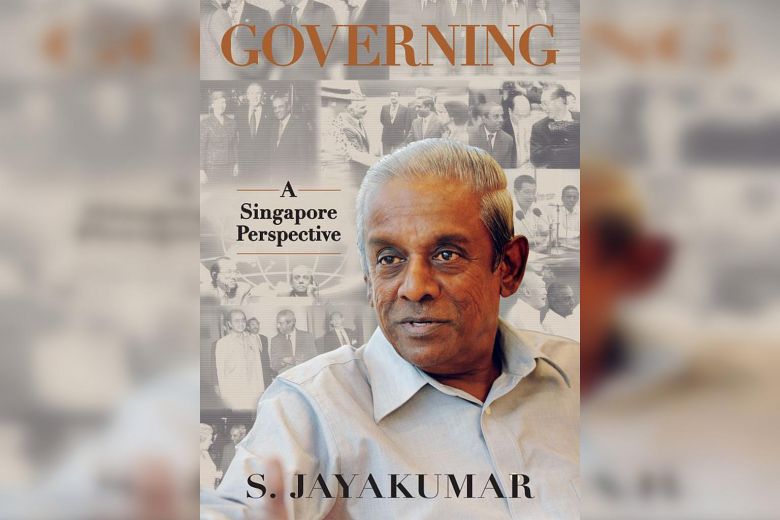Chairman of People’s Action Party (PAP), Khaw Boon Wan wrote that the next Prime Minister, if it is from the PAP, will be chosen by its next generation of leaders from among themselves.
This was mentioned in a letter written in response to Editor-At-Large Han Fook Kwang’s earlier commentary, “Relooking leadership renewal in Singapore“, that described the election process of the PM as being opaque as compared to other countries.
Mr Han was commenting on the succession process of PAP, the ruling party of Singapore which has held political power in the country from the day it gained independence from the British and the separation from Malaysia.
On the PAP’ selection process for the PM, he wrote, “Who makes the decision, apart from the PM, though isn’t clear.”, pointing out that PAP does not have a formal system of choosing its leader.
As PAP does have an election for its Central Executive Committee (CEC) every two years, Mr Han asked if the party should do so similarly to choose the next PM and commented that it should not also be such an opaque decision that no one knows what is happening until the succession announcement is made.
“Being more open and transparent would help Singaporeans understand better why a particular person was chosen and how the assessment was made.”
Mr Khaw in his letter wrote that he is surprised at Mr Han’s article as he had worked on many books with late founding PM, Lee Kuan Yew and heard Mr Lee describe in detail leadership succession in the PAP
Mr Khaw wrote, “We scour the country to find able, honest and committed people to field in elections. Possible candidates go through a rigorous vetting process. This begins the day after every general election.”
He goes on to state that the most promising among every cohort of MPs are then brought into government. They work with senior ministers, and are tested and stretched in a range of portfolios.
“In the process, they become confident in their roles and gain the trust of the people.” wrote Mr Khaw.
Apart from stating that the new Prime Minister will be elected by PAP’s new leaders, he went on to state, “… if all goes well, they will make this choice by consensus.” and that the older ministers including PM Lee Hsien Loong will stay out of the deliberations. However, Mr Khaw does not mention what would be the decision process if things do not go as well as PAP would plan.
Mr Khaw noted that the new leader will also have to be elected into the PAP’s Central Executive Committee, and become the party’s secretary-general.
Referring to the examples brought up by Mr Han in his commentary, Mr Khaw pointed out: Australia has had five prime ministers in five years, with three of the four switches due to intra-party feuds. In the United States, the major parties choose their presidential nominees through a prolonged, prodigiously expensive and deeply divisive process. And in Britain, the Conservative Party has just had a brutal contest for a new leader, while the Labour Party is in the throes of yet another internecine struggle to determine the fate of its current leader.
He highlighted that Singapore is lucky to have had leadership cohesion over five decades, across three generations. “The shared sense of purpose among ministers, and the consciousness that becoming PM is a responsibility to be borne and not an ambition to be sought, means the ruling party is not riven by factions.”
Mr Khaw ended his letter in an interesting and contradicting note of his earlier statements by writing, “Why would we want to exchange this calm and rational process for periodic political bloodlettings that leave deep and lasting wounds, both within the party and the body politic?”
Mr Khaw earlier noted that the new PM will have to be elected into the CEC by the party cadre members, but why is then Mr Han’s suggestion of having a PM being elected by the party cadre members being rejected? If it is just plainly an election within the CEC members as documented for the process in which the first Prime Minister was elected via, why wouldn’t Mr Khaw just clarify as such.
He also noted that PM has to enjoy the support of the parliamentary party which is the cabinet members, who are the supposed new leaders of PAP. So would the PM be elected by the incoming cabinet? It probably might seem so, given that ST gave the headline, “Next PM will be picked by the young ministers”.
As Mr Khaw implied that “periodic political bloodlettings that leave deep lasting wounds” ought to be avoided in place for a calm and rational process. How then is the new ministers going to decide the upcoming PM without lobbying for support as seen in the case of late Mr Lee Kuan Yew’s struggle for political power with Ong Eng Guan? And given that the cabinet is appointed by PM himself/herself, wouldn’t it be a case of chicken and egg dilemma?
Unless of course, the next PM is already pre-determined by some opaque process.







